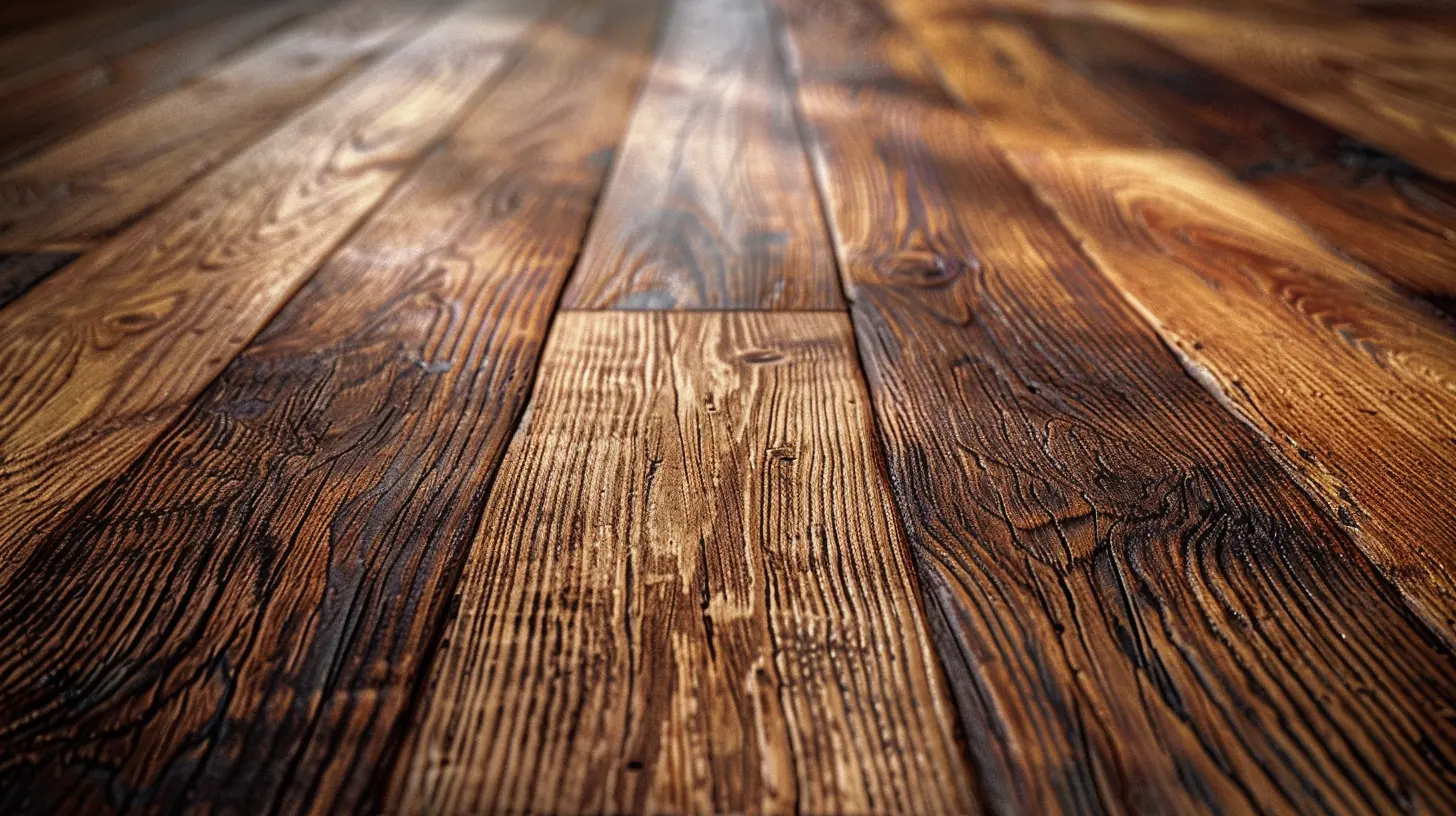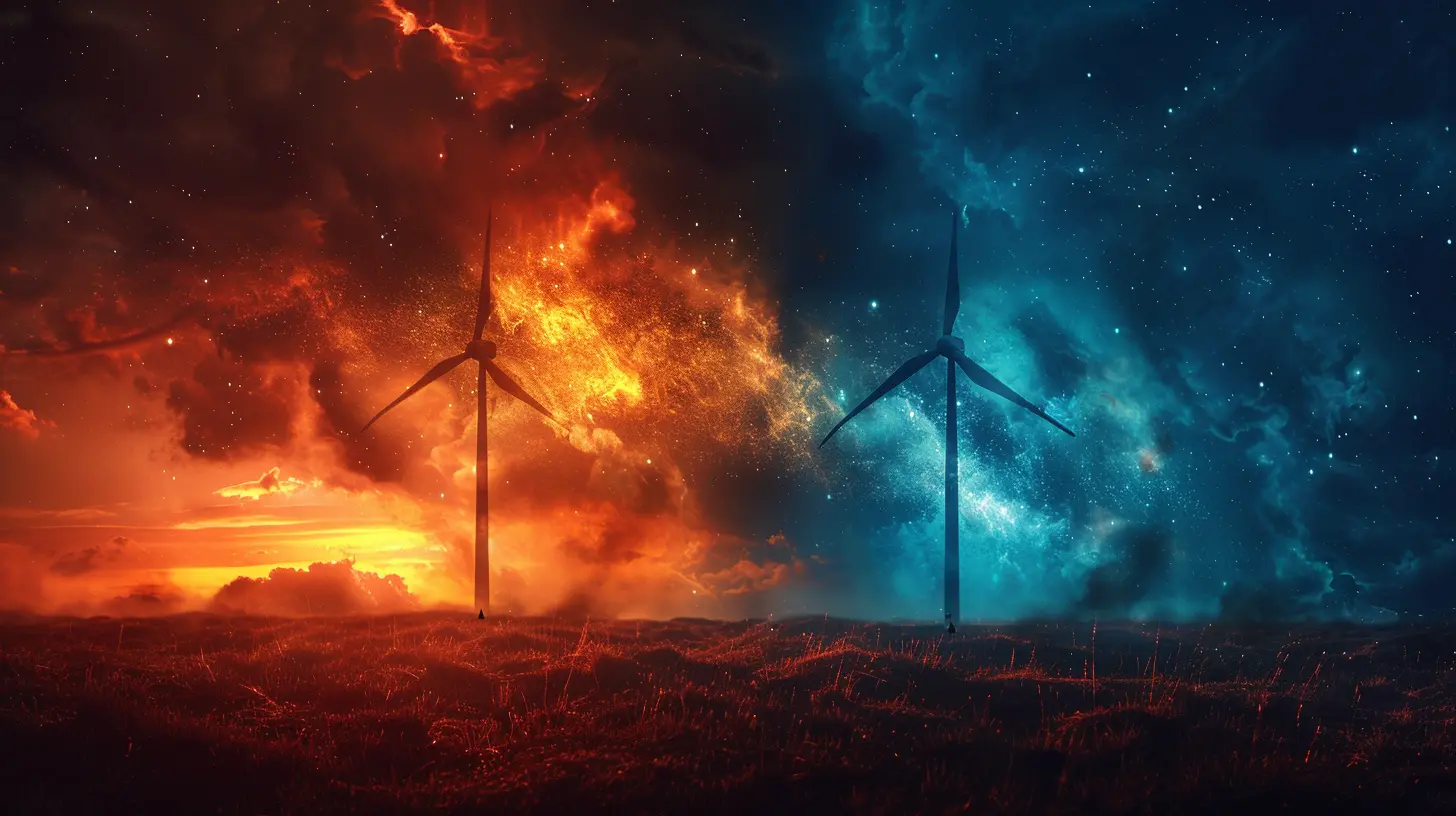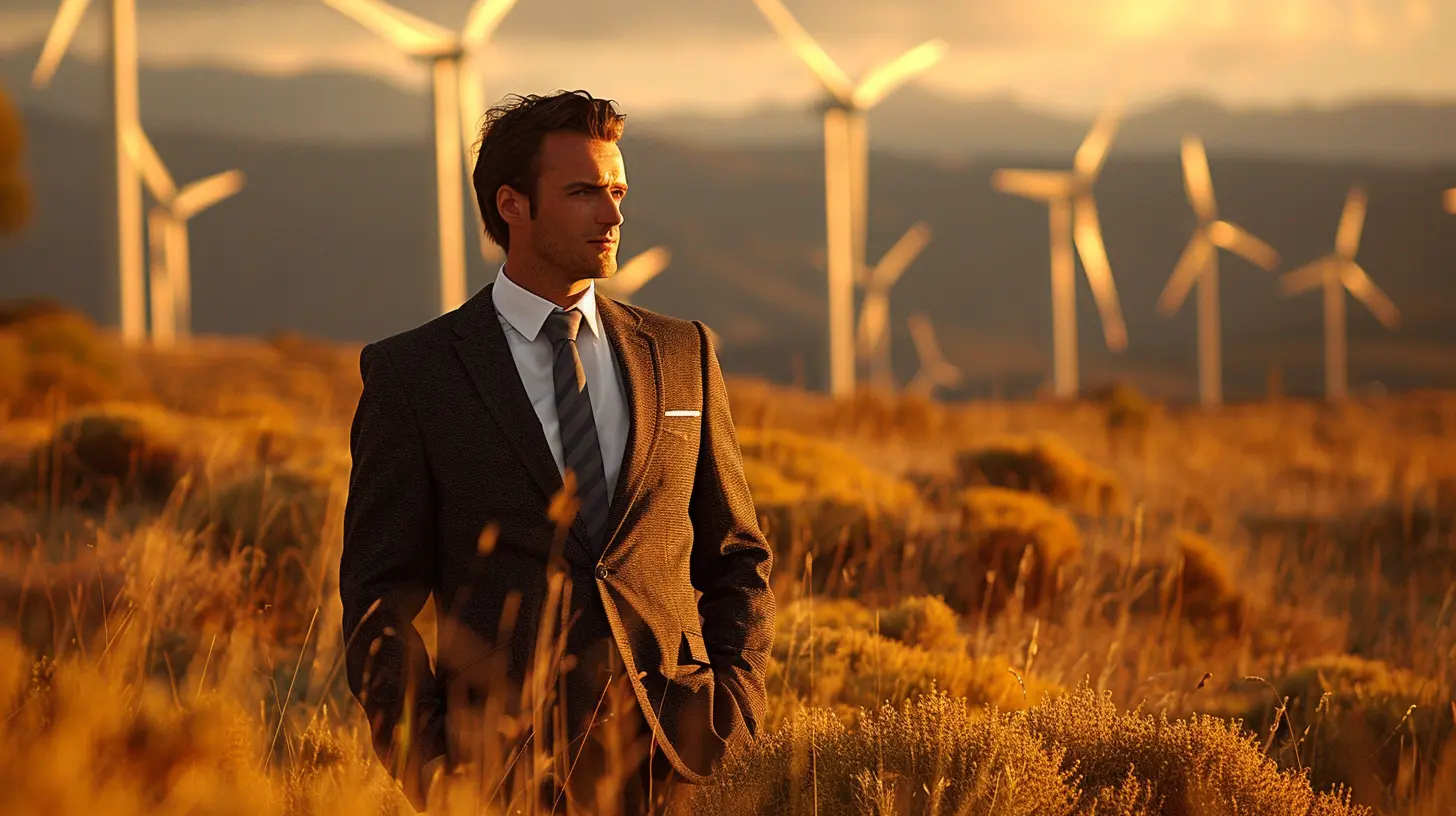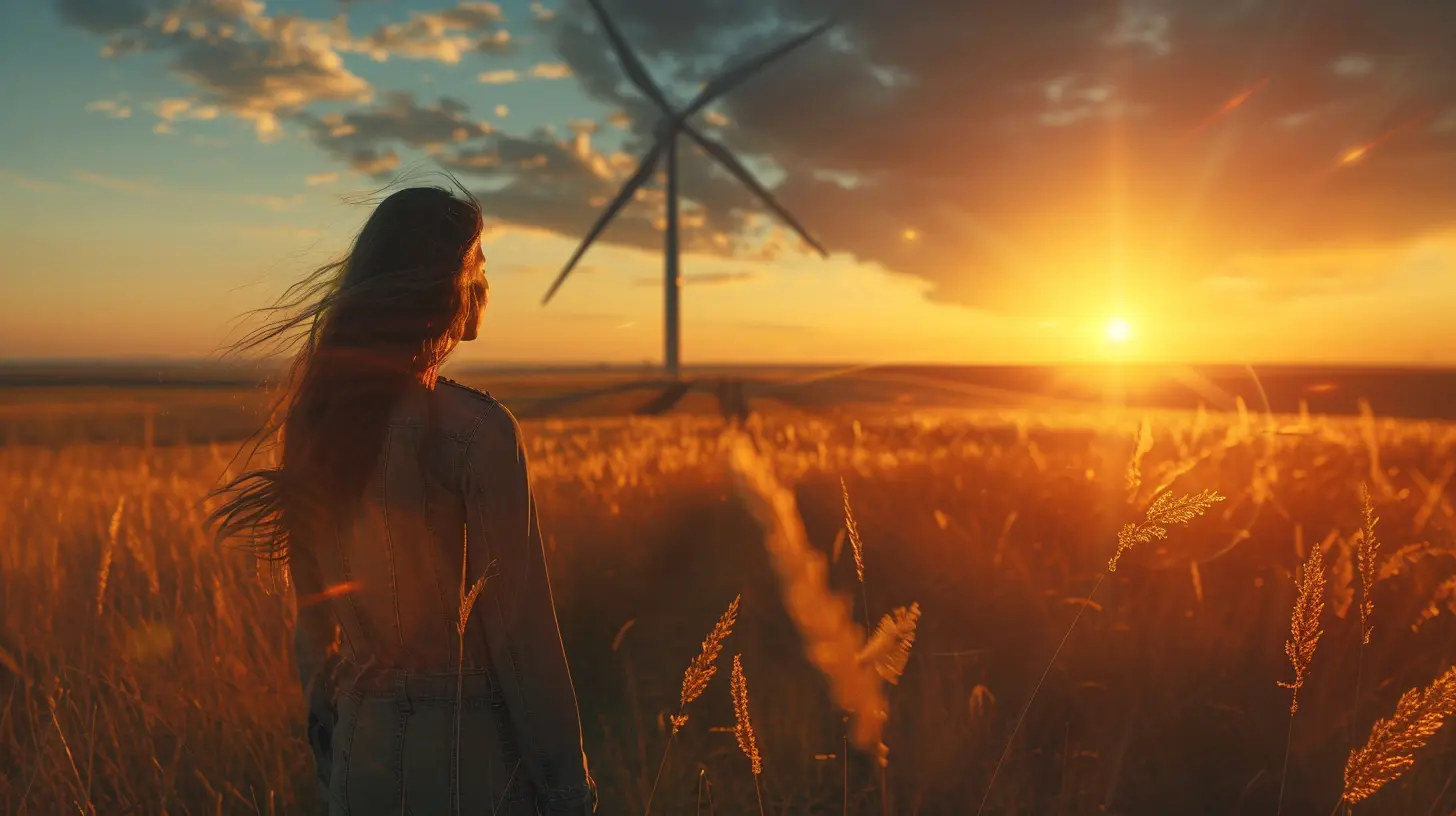Wind vs. Solar: Which Renewable Energy Source is Right for You?
14 April 2025
Renewable energy is the future. As we continue to drift away from fossil fuels, the choice between wind and solar energy has become a popular topic for homeowners, businesses, and governments alike. But when it comes to installing a renewable energy system for your own use, how do you decide between the two? Wind and solar are both great options, but they come with different benefits, challenges, and requirements. So, which one is the right fit for you?
Let’s break it down in plain English, so you can make the best choice for your energy needs. Whether you're an eco-warrior looking to reduce your carbon footprint or just want to save a few bucks on your energy bill, this guide will help you figure out whether wind or solar energy is the better option.

Understanding the Basics
Before we dive into the nitty-gritty, let’s quickly cover the basics of both wind and solar energy.What is Wind Energy?
Wind energy is exactly what it sounds like: energy that comes from the wind. Wind turbines capture the kinetic energy from wind and convert it into electricity. The faster the wind blows, the more energy you can generate. These turbines can be placed on land (onshore) or offshore (in the ocean) where wind speeds tend to be higher.What is Solar Energy?
Solar energy comes from harnessing the power of the sun. Solar panels absorb sunlight and convert it into electricity using photovoltaic (PV) cells. Solar energy systems can be installed on rooftops, in open fields, or even on a small scale right in your backyard. The more sunlight you get, the more electricity you can produce.
The Pros and Cons of Wind Energy
Pros:
1. High Energy Output in Windy AreasWind turbines can generate a significant amount of electricity, especially in areas with consistent high winds. Offshore wind farms, in particular, are incredibly efficient because of the strong and steady wind patterns over the ocean.
2. Works Day and Night
Unlike solar panels, which only generate electricity during the day, wind turbines can operate 24/7 as long as there’s wind. That means no downtime at night or on cloudy days.
3. Small Land Footprint
Wind turbines take up very little ground space. Most of the land around a turbine can still be used for farming or other activities, making it an appealing option for rural areas.
Cons:
1. Inconsistent Energy ProductionWind is unpredictable. Some days are windy, and some aren’t. If you live in an area where wind speeds vary greatly, you might find that your energy production fluctuates drastically.
2. Higher Initial Costs
Wind turbines, especially large ones, are expensive to install. The upfront costs can be a major barrier for homeowners or small businesses.
3. Aesthetic and Noise Concerns
Let’s be real—wind turbines aren’t exactly the prettiest thing to have in your backyard. Some people also complain about the noise they produce, particularly if you’re living close to a large wind farm.
The Pros and Cons of Solar Energy
Pros:
1. More Predictable Energy ProductionSolar energy is more consistent than wind. The sun rises and sets at predictable times, and with proper planning, you can generate a steady flow of electricity during daylight hours.
2. Low Maintenance
Solar panels have no moving parts, which means less maintenance than a wind turbine. As long as you clean the panels occasionally and ensure they’re free of debris, they should last for decades with minimal upkeep.
3. Scalable and Modular
Solar energy systems are highly scalable. You can start small with just a few panels and add more over time. This makes it easy to fit the system to your budget and energy needs.
4. Silent Operation
Unlike wind turbines, solar panels make no noise. You won’t have to worry about any humming or whirring sounds coming from your energy system.
Cons:
1. Energy Production Stops at NightUnfortunately, solar panels don’t work when the sun goes down. This means you’ll either need a battery system to store energy or rely on the grid during the nighttime.
2. Large Installation Area Needed
To generate enough power, you might need a lot of solar panels, which can take up significant space. For homeowners, this often means covering most or all of their roof with panels.
3. Weather Dependent
Cloudy days can drastically reduce the amount of electricity your solar panels produce. If you live in an area that isn’t sunny year-round, this could be a major downside.
Key Factors to Consider When Choosing Between Wind and Solar
1. Location, Location, Location
Where you live plays a huge role in deciding whether wind or solar is the better option for you. If you’re located in an area with strong, consistent winds—like a coastal region or flat plains—wind energy might be a solid choice. On the other hand, if you live in a sunny place, such as Arizona or California, solar power could be the obvious winner.In some cases, hybrid systems that use both wind and solar could be the best solution. For example, if you live in an area where it's windy during certain seasons and sunny during others, combining both energy sources can give you more reliable year-round energy production.
2. Budget
Let’s talk money. When it comes to the initial investment, solar tends to be more affordable, especially for residential systems. The price of solar panels has dropped dramatically in recent years, making it a more accessible option for many people. Wind turbines, particularly large-scale ones, often come with a much heftier price tag.However, wind turbines can generate more power than solar panels in the right conditions, which might offset those upfront costs in the long run. If you're after quick savings and have a smaller budget, solar could be the way to go. If you're willing to invest more upfront and live in a windy area, wind energy could pay off over time.
3. Energy Needs
How much energy do you actually need? Solar panels are great for homes with moderate energy demands, while wind turbines are better suited for locations that require more power, like farms or large properties.If you’re installing renewable energy for a small business or a large home, go ahead and crunch the numbers. Wind turbines can generate a lot of electricity, but only if you have the space and wind speeds to support them. On the flip side, solar panels are more predictable but might require a larger array to meet your energy needs.
4. Aesthetics and Space
Let’s face it—solar panels look a lot sleeker than wind turbines. If aesthetics are important to you, solar might be the more attractive option. Wind turbines, while efficient, are often seen as eyesores, especially in residential areas. Plus, they can be noisy, which might not sit well with you or your neighbors.Space is another consideration. If you’ve got a large property or live in a rural area, a wind turbine could be a good fit. But if you’re in a more urban setting with limited space, solar panels are the way to go since they can be installed on rooftops, minimizing the land footprint.
Environmental Impact
Both wind and solar are fantastic options for reducing your carbon footprint, but they come with different environmental considerations.Wind turbines can sometimes pose a threat to wildlife, particularly birds and bats that might fly into the turbine blades. However, this issue is being mitigated with better design and placement strategies.
Solar panels don’t have the same wildlife impact, but their production involves mining for materials like silicon and rare earth metals, which can harm the environment if not managed properly. Additionally, disposing of old solar panels can be problematic if they aren’t recycled.
That said, both wind and solar are far cleaner than fossil fuels, so whichever you choose, you’ll be doing your part for the planet.
Final Verdict: Which One is Right for You?
At the end of the day, the decision between wind and solar comes down to your specific needs and circumstances. If you live in a windy location, have ample space, and need a lot of power, wind energy could be the better option. But if you’re in a sunny area, have a smaller budget, and prefer a quieter, more aesthetic solution, solar might be the way to go.Ultimately, both wind and solar energy are fantastic renewable options that can help reduce your reliance on fossil fuels, lower your energy bills, and contribute to a greener planet. So, no matter which one you choose, you're making a positive impact.
###
all images in this post were generated using AI tools
Category:
Renewable EnergyAuthor:

Michael Robinson
Discussion
rate this article
9 comments
Elowen McMurtry
Wind and solar each have unique advantages, but choosing the right one depends on your location and energy needs. Don't get lost in the debate—focus on what works best for your circumstances. Sustainability isn't just a trend; it's a necessity for our future.
May 10, 2025 at 12:56 PM

Michael Robinson
Absolutely! The best choice between wind and solar truly depends on individual circumstances, including location and energy needs. Emphasizing practical solutions over debate is key to a sustainable future.
Oliver Clark
When choosing between wind and solar, consider your location, budget, and energy needs. Both have unique benefits; assess which aligns best with your goals.
April 21, 2025 at 10:39 AM

Michael Robinson
Thank you for your insights! It's essential to weigh those factors to find the right renewable energy fit for individual circumstances.
Daphne Sullivan
Both wind and solar have unique advantages; choosing the right one depends on your location, budget, and energy needs.
April 20, 2025 at 7:44 PM

Michael Robinson
Absolutely! Both wind and solar have distinct benefits, and the best choice varies based on individual circumstances.
Georgina McClure
Choosing between wind and solar energy isn't just about efficiency; it reflects our values and priorities. Consider your environment, local resources, and long-term sustainability. True progress lies in harmonizing technology with nature, finding a balance that benefits both humanity and the planet.
April 20, 2025 at 3:38 AM

Michael Robinson
Absolutely, balancing efficiency with values is crucial. Both wind and solar have unique benefits, and considering local resources and sustainability is key to making the right choice for a harmonious future.
Grayson Moses
In the dance of sun and breeze, we find our way, Solar's warmth, wind's embrace—each a bright ballet. Choose your path in nature's song, For a greener world, where we belong.
April 19, 2025 at 3:55 AM

Michael Robinson
Thank you for your poetic reflection! Both wind and solar have unique benefits, and the best choice often depends on individual circumstances and environment. Embracing either path contributes to a greener future.
Cadence McNair
Choosing between wind and solar? It’s like picking your favorite superhero; both save the day, but in different ways!
April 18, 2025 at 7:05 PM

Michael Robinson
Absolutely! Both wind and solar have unique strengths and can complement each other in creating a sustainable energy future. Ultimately, the best choice depends on individual circumstances and needs.
Lanae Barker
Great article! It’s essential to consider local weather patterns and energy needs when choosing between wind and solar. Both have unique advantages worth exploring.
April 16, 2025 at 8:25 PM

Michael Robinson
Thank you! I completely agree—local conditions play a crucial role in making the best choice between wind and solar energy.
Noah Sharp
Great insights! Embracing renewable energy, whether wind or solar, empowers us to create a sustainable future. Every choice counts!
April 15, 2025 at 8:58 PM

Michael Robinson
Thank you! Absolutely, every choice we make towards renewable energy contributes to a more sustainable future.
Amber Bailey
Both have unique benefits—choose wisely.
April 15, 2025 at 3:11 AM

Michael Robinson
Thank you for your insight! Choosing the right renewable energy source depends on factors like location, budget, and energy needs.
MORE POSTS

How to Build a Strong Tech Startup Culture from the Ground Up

The Rise of Drone Technology in Robotics

Exploring the Intersection of Robotics and 3D Printing

The Intersection of Virtual Reality and Augmented Reality: Blurring the Lines

The Role of Blockchain in Enhancing Cybersecurity Measures

The Best Foldable Tablets for Work and Play

Boost Your Creativity with These Top Digital Tools